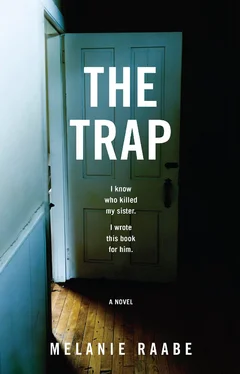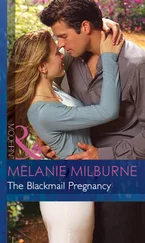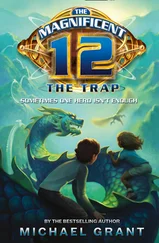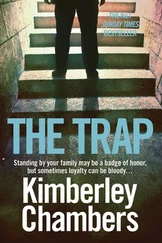I know too that this isn’t about Lenzen; that it isn’t his embrace I desire, that my desire isn’t for him. I know who it’s for, but I mustn’t think about that.
Lenzen was merely the trigger, but now it hurts to remember what it could be like to live among people — the looks, the physical contact, the warmth. I don’t want to think about it, but I’m drawn into my memories, and then the rational part of my brain starts up again. The grace period is over, and I think: any minute now the police will arrive.
I know that I have committed a crime, documenting it myself fastidiously — all those microphones and cameras here in the house. I have done terrible things and the police will come and arrest me, no matter what Lenzen said. As soon as he can think straight again, he’ll call them. But it won’t make much difference whether it’s here or in some prison, that I sit on my own and vegetate with a knot of desire in my chest.
So I do nothing. I don’t go around the house destroying all the tapes and cameras that have so mercilessly documented my madness. I lie down on my bed and wait, glad that nothing of the past hours surfaces in my consciousness, because I know that there is such a lot there that could distress me. As I’m thinking this, it happens, and a thought pops up, clothed in Lenzen’s voice, although it’s my thought too: “ The worst is the doubt. Doubt is like a thorn you can’t get ahold on. It’s terrible when a thing like that destroys families.”
I think of my parents, of what they were like in the aftermath of that terrible night — and, indeed, have been ever since. Subdued, as if someone had turned the volume down. They treated me gingerly, as though I had been made of glass. Gingerly and guardedly. Courteously, too, as if I were a stranger. I have always tried to interpret it as consideration, but deep down I’ve known that it is something else. It has taken Victor Lenzen for me to work out what that something is: it is doubt.
Linda loved Anna. No, Linda doesn’t have any motive at all. No, Linda wouldn’t be capable of a thing like that, and in any case, why would she? Impossible. No, never, definitely not, not a chance. But what if she had?
After all, we live in a world in which anything is possible: in which babies come into being in test tubes, and robots explore Mars, and tiny particles are beamed from A to B. So why not that? A vestige of doubt always remains.
I can’t bear it. I sit up in bed, reach for the telephone, dial my parents’ landline number that’s been the same for about thirty years, and wait. When did we last speak? How many years has it been? Five? Eight? I think of the drawer in the kitchen that is full of Christmas cards from my parents, because that’s the way we celebrate Christmas — we send each other cards. We haven’t spoken properly since Anna’s death. We ran out of words. Conversations became sentences, sentences became single words, words became syllables, and then we stopped talking altogether. How could it come to this? And can we ever get back from postcards — the only thing keeping us from total communication breakdown — to conversations? What if my parents seriously think I’m a murderer?
Do you really want to know, Linda?
Yes, I do.
It’s not until the ringing tone sounds that I remember that in the other world, where my parents live, time matters so much more than in mine. On the second ring I cast a hasty glance at the clock: it’s three in the morning — that late, damn it. How long did I stand in the kitchen, staring into space? How long did I spend watching my sleeping dog? How long did I lie there with the cold eyes of my surveillance cameras looking down on me like indifferent gods?
I’m about to hang up, having decided it’s too late for this, when I hear the alarmed voice of my mother.
“Hello?”
“Hello, it’s Linda.”
My mother lets out a noise that I can’t place — a deep, distressing groan. I don’t know what it means, and I’m searching for the right words, words to explain why I’ve got her out of bed in the middle of the night and to tell her that there’s something I must ask her that’s terribly difficult for me to ask, when there’s a crackle on the line followed by a drawn-out bleep. It’s some time before I realize that my mother has simply hung up.
I put down the phone and stare at the wall. Then I sink back into bed.
My name is Linda Conrads. I am thirty-eight years old. I am an author and a murderer. Twelve years ago I killed my younger sister Anna. No one can explain why. I probably can’t explain it myself. I’m probably quite simply mad. I am a liar and a murderer. That is my life. That is the truth. At least, it is for my parents.
A black thought that has been swirling around in my subconscious drifts to the surface, big and heavy, stirring up a maelstrom of other thoughts in its wake. Lenzen’s voice.
“ The Disney princess up on her high horse. If I were a woman — if I were Sophie — I would detest Britta.”
And I think: I did too.
The pain of that realization. The memories. Yes, I did detest her; yes, I hated her; yes, I was jealous; yes, I thought it was wrong that my parents always favored her — the younger one, the prettier one, the one who knew how to manipulate them, who looked so sweet and innocent with her blonde hair and her around child’s eyes that she had everyone wrapped around her little finger. Everyone except me, because I knew what she was really like; I knew how hurtful she could be, how inconsiderate, how cruel, how incredibly mean.
Mum and Dad will believe me, want to bet?
Do you like that bloke? I can make him come home with me, want to bet?
No wonder Theo reached the point where he couldn’t stand her anymore; after all those years of their relationship, he’d had a glimpse behind the scenes; he knew her almost as well as I did.
Oh no, Anna wouldn’t do a thing like that, Anna wouldn’t say a thing like that, you must have got it wrong — she’s only little. You’re trying to tell me Anna did that? There must have been some misunderstanding; that doesn’t sound like her at all. Honestly, Linda, why do you always come up with such lies?
Anna, Anna — Anna, who could always wear white without spilling on it — Anna, who had mix tapes made for her by the boys — Anna, who inherited our grandmother’s ring — Anna, whose name you could read backward as well as forward, whereas my name backward is a joke.
If you read your name backwards, you get Adnil. Sounds like Adolf or Arsehole. Now don’t go and get angry again, Adnil, I was only joking. Adnil — hahahahaha.
Saint Anna.
Yes, I detested my sister. That is the truth. That is my life. I don’t want to think about it. I don’t want to think about the police, who aren’t here although they ought to be by now, or about my parents, or Victor Lenzen or my own black thoughts.
I reach out for the bedside table, pull open the drawer, take out a packet of pills (a bumper pack from the USA — I love the Internet), shake a few into my hand, wash them down with stale water, retch and then notice I’m hungry. My stomach rebels — my stomach full of pills. I curl up in a fetal position and wait for the cramps to stop. I want to sleep. Tomorrow is another day. Or, with a bit of luck, not. My stomach feels like a fist. Liquid collects in my mouth and I can’t help thinking of the pool of shock and poison and gall that Victor Lenzen left on my dining-room floor. Everything is spinning around me.
Pressing my hand to my mouth, I slip off the bed and totter toward the door. Bukowski glances up, sees that I’m beyond help and leaves me to my own devices. I stagger to the upstairs bathroom and just make it to the basin before throwing up. I turn on the taps, wait a moment and retch again, suddenly sweating — suddenly cold.
Читать дальше












